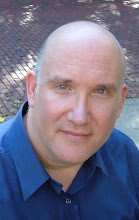
There is nothing less life changing than a New Year Resolution. What may seem like an ideal time for change is an exceptionally bad choice. Most of us break our resolutions a few days, if not a few hours into the New Year. The problem is not only in our timing but in the resolutions themselves. We think we know what we want but…
Among the most common resolutions, getting fit or loosing weight is near the top of the list. Just under that is quitting some vice like smoking or drinking. And bringing up the rear is getting out of debt. What worse time of year could a person choose to attempt any of these goals? One party comes after another. Cookies, cakes and candy are everywhere. Drinking and smoking seem to go so well together, many of us cannot do one without the other. And, on average, holiday shopping adds between $900 and $1,500 worth of credit card debt to our financial woes.
It is no wonder that most resolutions are kaput as soon as the ball falls in Time Square. No sooner do we finish with that New Year kiss, we begin rationalizing a better time to start our resolutions. Tomorrow, that’s it, I’ll start tomorrow. But tomorrow never comes or if it does, it brings new excuses with it. Resolutions tend to be more life damaging than life changing. Many of us begin our new year with more failure and guilt than we do with purpose and good intention. So stop the madness.
Aristotle said, “Happiness is the meaning and purpose of life, the whole aim and end of human existence.” In other words, we want to be happy. When we choose our resolutions, we do so because we think that achieving those goals, whatever they may be, will bring happiness with them. It is the happiness we want.
Do not bother with resolutions until you know what you are doing. No one thing or condition can make us happy or unhappy. You have heard the adage that money won’t buy happiness. The opposite is equally true. The lack of money won’t buy unhappiness. Evidence of this fundamental truth is all around us. Embrace it.
So, before we start listing the things we want to change about our lives, we should spend a little time thinking about happiness--not about what we think will make us happy but about when we are aware of being happy.
If, as Aristotle asserted, we are truly looking for happiness, we should look for it where it already exists, not where we think it should be. Happiness is not trying to elude us as if we were playing a cosmic game of hide and seek. It is right there. Ask yourself these questions: When do I feel the greatest joy, satisfaction or the sense of accomplishment? When am I filled with warmth, love and kindness? When am I most confident and proud of myself? The answers to these questions will tell you more about yourself and your true happiness than success at any New Year Resolution.
I am not suggesting we content ourselves with our lot in life. We all have aspects of our lives which could use a little work but far too often, we work on the wrong things. We are driven by advertisers who suggest we will be happier if we were thinner, better looking, younger, sexier, more successful or more powerful. Why do we persist in believing that such things will make us happy when there is so much evidence to the contrary?
Perhaps this is why so many people are obsessed with Hollywood gossip. We somehow feel a perverted sense of satisfaction when people, whom we think of as having everything, fail to be happy. For heaven’s sake, look at Oprah--a wonderful person, loving, interested in the well-being of others, extremely successful, the epitome of Hollywood power. Let her gain a few pounds and we pounce on her like a pride of hungry lions. We thirst after the reason why that woman is not living in absolute bliss!
When we recognize our real happiness, we more clearly see the things in life that we have allowed to act as barriers to our prolonged and pervasive contentment. We may, for example, realize that we are happy when dancing and we might think that losing a bit of weight will help us spend more time on the dance floor. More often is the case that more time on the dance floor results in our losing weight! You see, the real barrier is not the weight but the reasons we give ourselves for not dancing.
Eliminating the barriers to happiness will not make us happy. Like New Year Resolutions, that is a loser’s game. When we focus our attention on the things that get in the way of our happiness, we spend too much time thinking about being unhappy. Life is too short to waste time on such things.
We can all find happiness in our lives, even if that happiness has been obscured to the point of being a mere glimmer. We often allow so many of our obligations and difficulties to get in our way that we almost entirely divorce ourselves from happiness. If you are going to make any resolution at all, let it be for you to find that glimmer of happiness in your life and give yourself the freedom to nurture it and let it grow.
Joseph Onesta is a speaker, trainer and consultant. His company, Integrity HPI: Human Performance Improvement partners with organizations to develop and "employer of choice" work environment.



